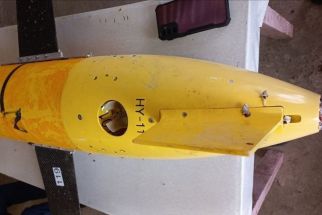10 Doppler radars to be installed around RP
December 16, 2006 | 12:00am
The country would be able to improve weather forecasts significantly in the next few years as 10 Doppler radars are expected to be installed in different areas of the country until 2010, officials said yesterday.
Nathaniel Cruz, weather bureau chief of the Philippine Atmospheric, Geophysical and Astronomical Services Administration (PAGASA), said three Doppler radars funded by the government would be installed in Cebu, Tagaytay and Subic as soon as the bidding process is finished.
The Japan International Cooperation Agency (JICA) would fund the purchase of three radars while the Senate has allocated P200 million for the acquisition of two radars.
PAGASA is looking for agencies which can provide funding for two more radars by 2010.
The Doppler radar is capable of generating short-term but highly accurate weather forecasts. Cruz earlier said it can provide weather forecasts every three to four hours compared to the present 24-hour forecasting.
Cruz said this would be the first time that the country would have Doppler radars.
The weather bureau is also planning to acquire the country’s first-ever satellite forecasting instrument by 2010, which would enhance the agency’s capability of forecasting weather disturbances that might cause massive devastation in the country.
The satellite costs P1 billion. — Helen Flores
Nathaniel Cruz, weather bureau chief of the Philippine Atmospheric, Geophysical and Astronomical Services Administration (PAGASA), said three Doppler radars funded by the government would be installed in Cebu, Tagaytay and Subic as soon as the bidding process is finished.
The Japan International Cooperation Agency (JICA) would fund the purchase of three radars while the Senate has allocated P200 million for the acquisition of two radars.
PAGASA is looking for agencies which can provide funding for two more radars by 2010.
The Doppler radar is capable of generating short-term but highly accurate weather forecasts. Cruz earlier said it can provide weather forecasts every three to four hours compared to the present 24-hour forecasting.
Cruz said this would be the first time that the country would have Doppler radars.
The weather bureau is also planning to acquire the country’s first-ever satellite forecasting instrument by 2010, which would enhance the agency’s capability of forecasting weather disturbances that might cause massive devastation in the country.
The satellite costs P1 billion. — Helen Flores
BrandSpace Articles
<
>
- Latest
- Trending
Trending
Latest
Trending
Latest
Recommended
January 3, 2025 - 12:00am
January 3, 2025 - 12:00am



























